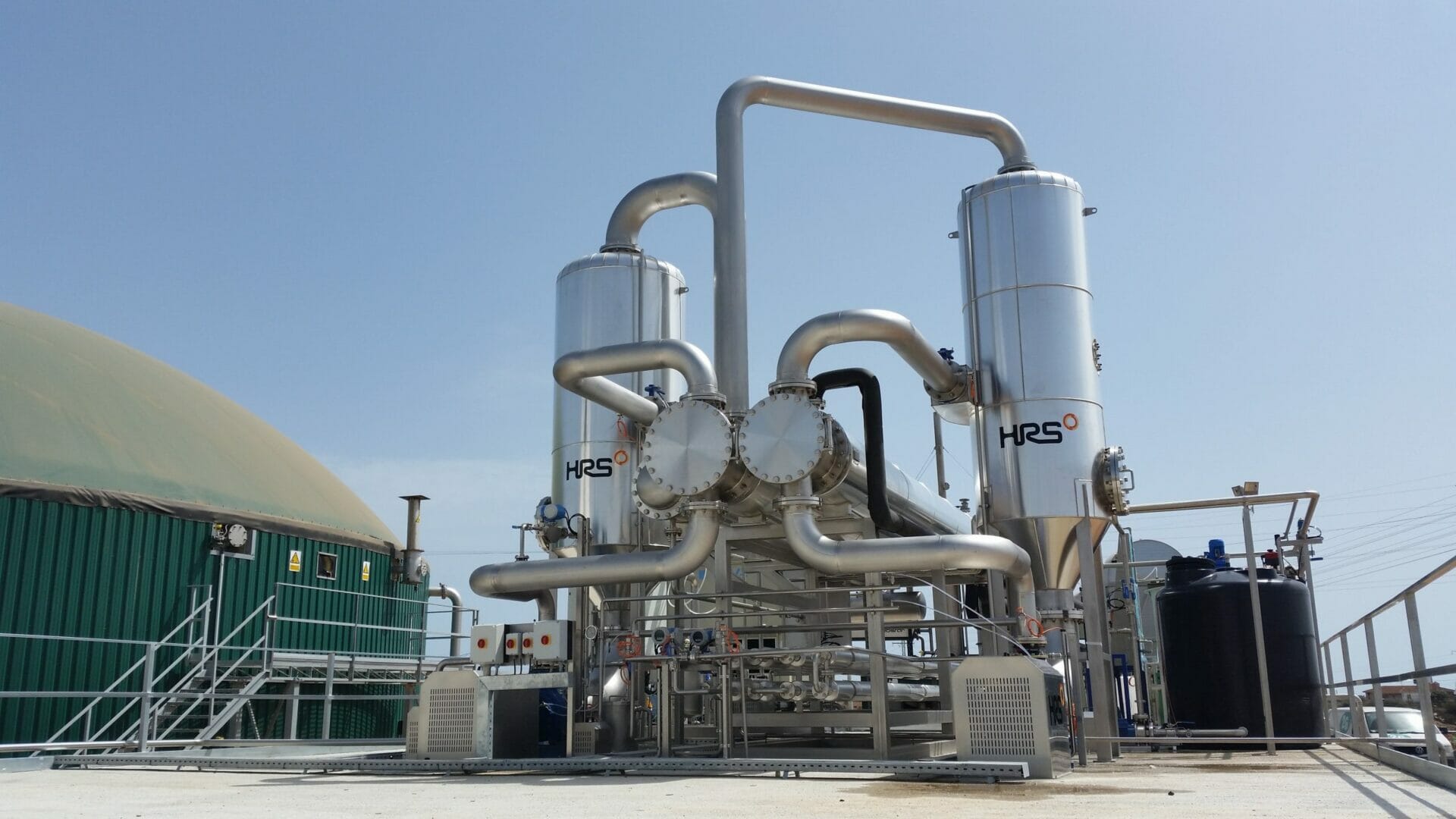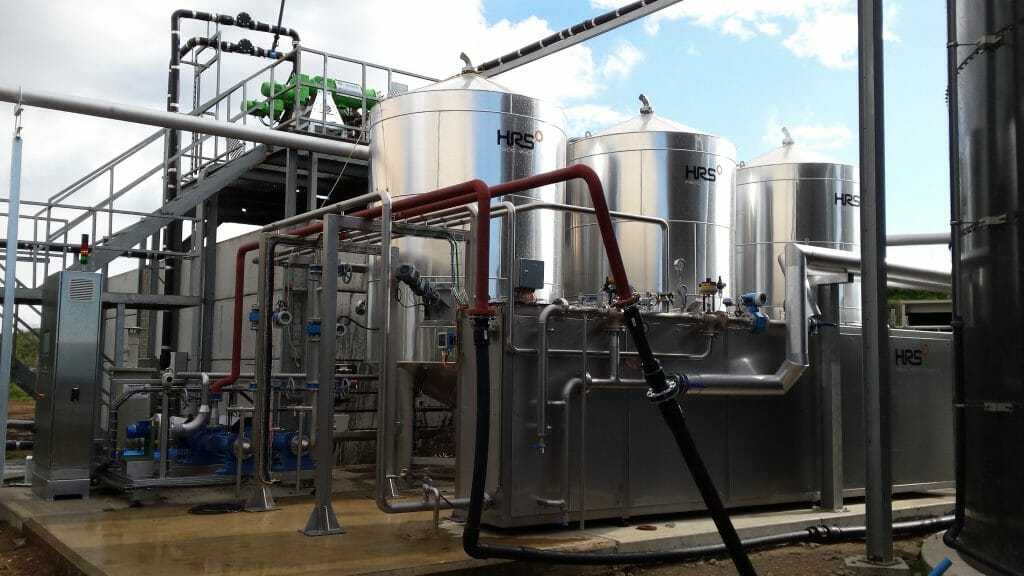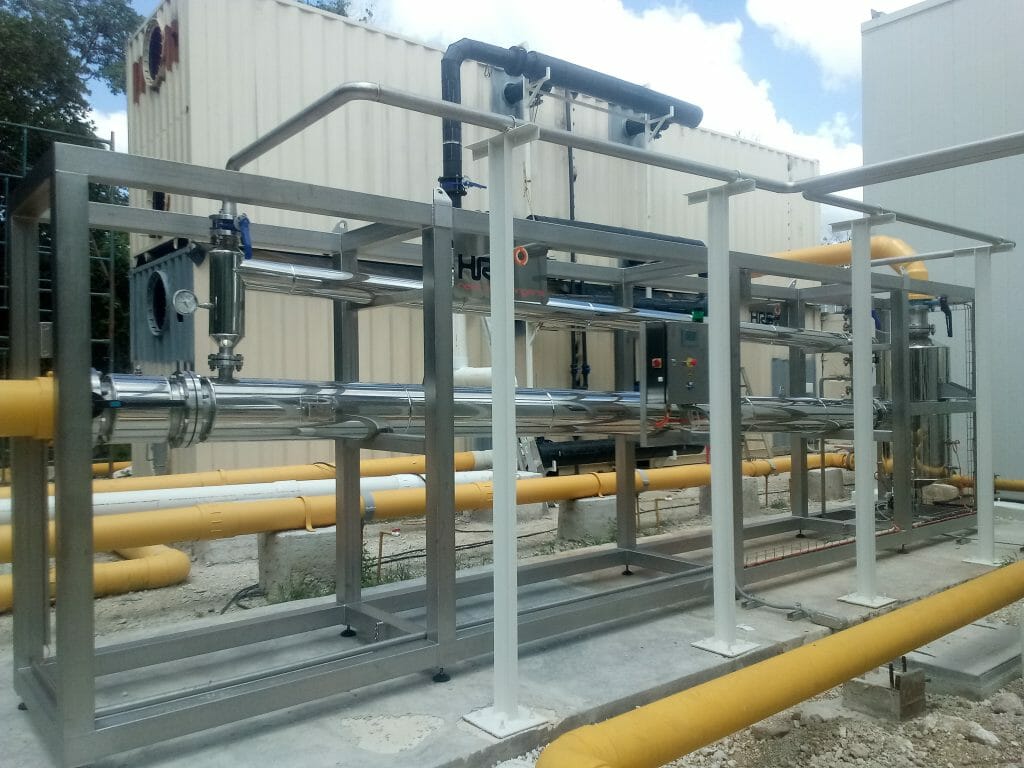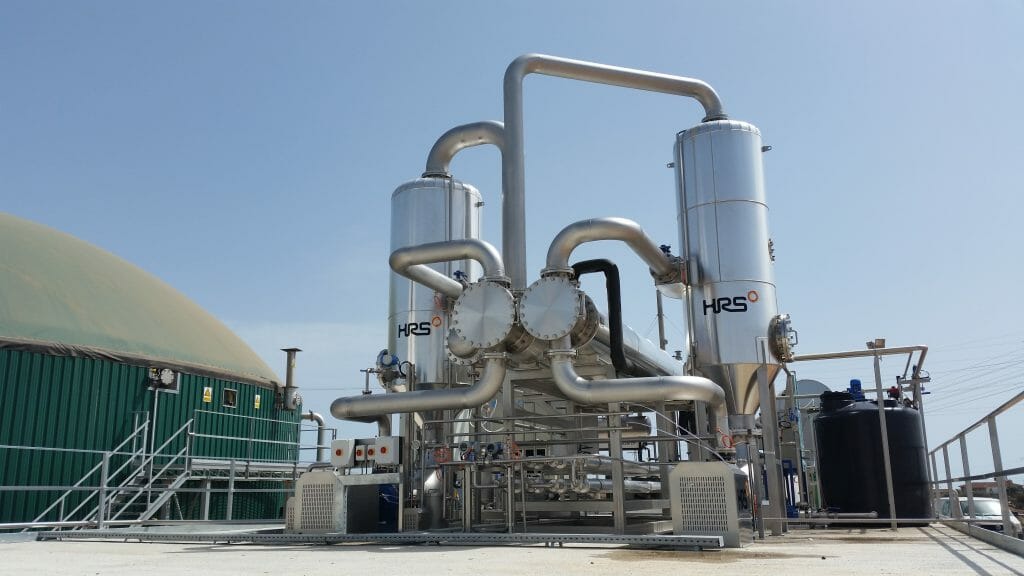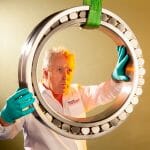By Matt Hale, International Sales & Marketing Director, HRS Heat Exchangers
Last month (August 2021) the Inter-Governmental Panel on Climate Change (IPCC) published its sixth assessment report on climate change which painted an alarming picture of the global effects of climate change and the need for immediate action to reduce the impact of greenhouse gas (GHG) emissions on the environment.
In particular the IPCC report identified that urgently tackling emissions of methane is a cost-effective and rapid way of helping to reduce the future effects of climate change. However, given this emphasis on the need for rapid action, it is disappointing that the deployment of anaerobic digestion (AD) around the world falls far short of capacity.
Both the UN Environment Programme (UNEP) and Climate & Clean Air Coalition (CCAC) and the International Energy Agency (IEA) have recognised that AD is ‘a readily available low-cost technology that can help reduce these emissions.’ However, despite some positive developments, such as the European Union’s Methane Strategy, AD and its potential to mitigate methane emissions, deliver clean renewable gas and sustainable organic biofertiliser is seriously overlooked by many policymakers.
In the wake of the latest IPCC report Charlotte Morton, Chief Executive of the World Biogas Association, warned: “Research from the WBA and other biogas trade bodies… has demonstrated our industry’s potential to deliver a huge reduction in global GHG emissions, especially methane, within the next few years… We are issuing our own warning to world governments that it is dangerous to overlook the recognised power of AD as an immediate solution.”
- HRS agrees that the potential of anaerobic digestion to help mitigate climate change must not be overlooked by policy makers
- The HRS Digestate Pasteurisation System (DPS) can produce energy savings of 70% compared with other technologies
- The HRS Biogas Dehumidification System (BDS) removes water from biogas, protecting CHP engines from corrosion and cavitation
- The Digestate Concentration System (DCS) reduces the volume of digestate, increasing the nutrient content and making it easier to handle
With experience of delivering heat exchange solutions and systems to AD plants around the world, HRS Heat Exchangers wholeheartedly agrees with these comments. Not only is AD underutilised around the world, but in many situations where it is deployed, the overall efficiency of biogas production or spare heat utilisation is less than optimum.
HRS produces a range of systems which are specifically designed to improve the efficiency of AD plant operation, add value to digestate production (which is a valuable, renewable and low-carbon organic fertiliser and soil conditioner) and prolong the life of AD plant components. Among these systems are our Digestate Pasteurisation System (DPS), Digestate Concentration System (DCS), and the Biogas Dehumidification System (BDS Series).
HRS also manufacture a range of heat exchangers for use in biogas production including the HRS Unicus Series of scraped surface heat exchangers for use in thermal hydrolysis to increase biogas production, the G Series for exhaust gas cooling and heat recapture, and the DTI Series for feedstock and digestate heating.
Whatever your biogas project, from small on-farm crop and manure digestion to large municipal waste treatment HRS Heat Exchangers has the solutions to increase AD plant efficiency, prolong operational life and maximise both the economic and environmental benefits.

